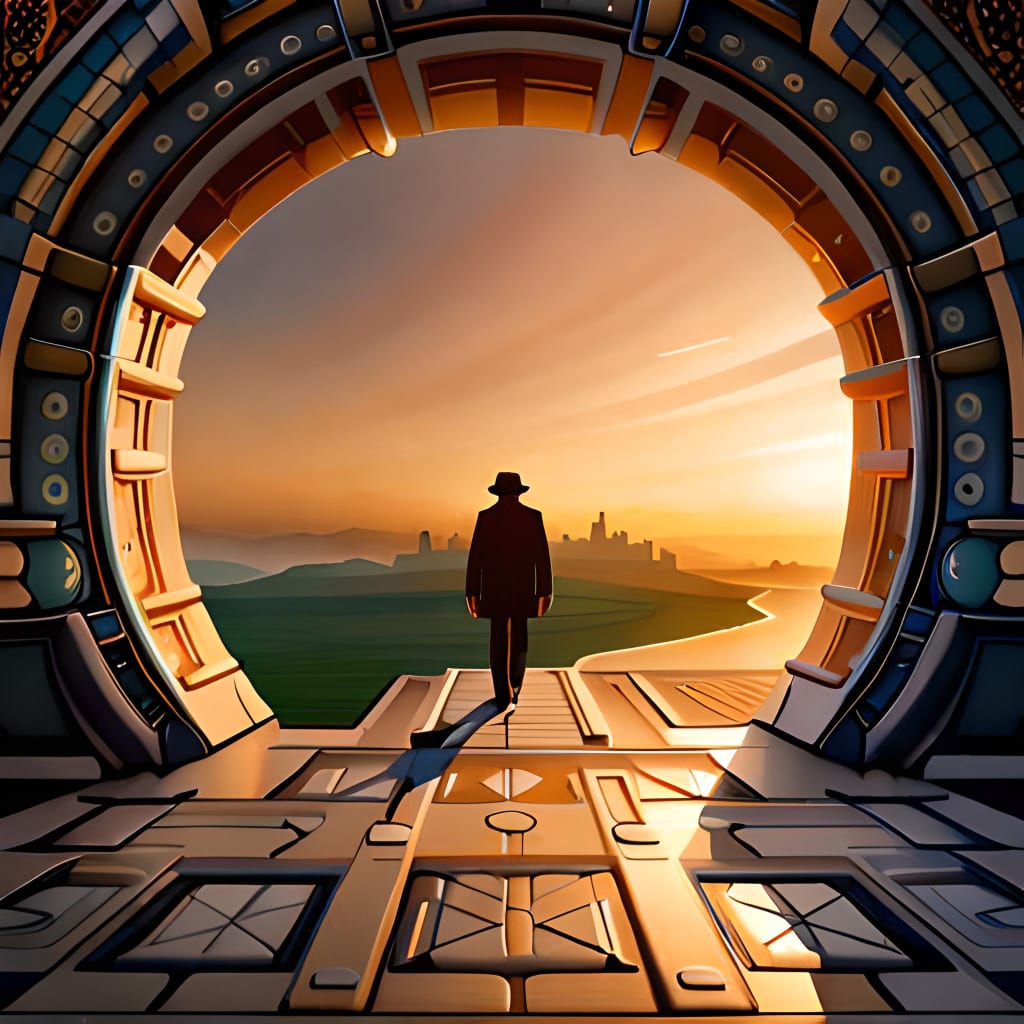"Unlocking the Mysteries: The Fascinating Science Behind Time Travel"
Time Travel Unveiled: Unraveling the Enigma, Embracing the Adventure

Time travel has long captivated the human imagination, being a recurring theme in science fiction literature, movies, and TV shows. While the idea of traversing through time and experiencing different eras is intriguing, the scientific exploration of time travel delves into complex theories and concepts. In this article, we will embark on a journey to understand the scientific principles behind time travel and explore the implications they hold.
1. Introduction
Time, as we perceive it, is a fundamental aspect of our existence. It moves forward in a seemingly linear fashion, shaping our experiences and memories. However, the notion of time travel challenges this conventional understanding and opens up a realm of possibilities where the past, present, and future can intersect.
2. The Concept of Time
To grasp the mechanics of time travel, we must first examine the concept of time itself. In physics, time is often considered the fourth dimension, intertwined with the three dimensions of space. The interplay between space and time is encapsulated in the theory of relativity, formulated by Albert Einstein.
3. Understanding Time Travel
Theoretical Background
According to the theory of relativity, time is not absolute but is relative to an observer's frame of reference. This means that time can be influenced by factors such as gravity and velocity. As objects approach the speed of light or experience extreme gravitational forces, time dilation occurs, leading to a discrepancy in the passage of time compared to a stationary observer.
Time Dilation
Time dilation is a key concept in understanding time travel. As an object moves at high speeds or near massive celestial bodies, time slows down relative to a stationary observer. This phenomenon has been experimentally verified through high-precision atomic clocks placed on airplanes and satellites, demonstrating small but measurable time differences.
Wormholes and Black Holes
Another theoretical avenue for time travel involves the manipulation of spacetime through wormholes and black holes. Wormholes are hypothetical tunnels that connect distant points in spacetime, potentially allowing for shortcuts between different regions or even different eras. Black holes, on the other hand, possess immense gravitational forces that could alter the flow of time in their vicinity.
4. The Grandfather Paradox
One of the most famous conundrums associated with time travel is the Grandfather Paradox. This paradox postulates a scenario where a time traveler goes back in time and inadvertently prevents their own existence by, for example, killing their grandfather before they have children. This paradox raises questions about causality and the potential for altering the timeline.
5. Approaches to Time Travel
While time travel remains largely theoretical, several approaches have been proposed by scientists and theorists.
Time Machines
The concept of a time machine, popularized in fiction, involves a device that can transport an individual through time. The idea of constructing a functional time machine is a daunting task, considering the immense energy requirements and technological hurdles that need to be overcome.
Cosmic Strings
Cosmic strings are hypothetical one-dimensional topological defects that could exist in the fabric of spacetime. These cosmic strings might possess enough mass and energy to warp spacetime significantly, potentially enabling time travel under specific circumstances. However, the existence of cosmic strings is still a matter of theoretical speculation.
Tipler Cylinders
Theoretical physicist Frank Tipler proposed the concept of Tipler cylinders, long spinning cylinders with immense mass. These cylinders, if they could be constructed, might allow for time travel by exploiting their gravitational fields to create closed timelike curves. However, the practicality and feasibility of Tipler cylinders are highly speculative.
Quantum Tunneling
Quantum tunneling, a phenomenon observed at the quantum level, involves the spontaneous passage of particles through barriers that would be impossible according to classical physics. While quantum tunneling has been experimentally verified on a small scale, harnessing this phenomenon for time travel purposes would require overcoming numerous technical and theoretical challenges.
6. Practical Limitations and Challenges
While the concept of time travel holds immense fascination, there are numerous practical limitations and challenges that make its realization a formidable task.
Energy Requirements
One significant challenge is the enormous amount of energy required to manipulate spacetime in a manner that allows for time travel. The energy densities involved are currently beyond our technological capabilities, and finding ways to harness such vast amounts of energy remains a major obstacle.
Temporal Navigation
Navigating through time poses its own set of challenges. Determining the precise destination in time and ensuring a safe return to the present era is a complex task. The absence of temporal landmarks and the potential for timeline divergence add layers of complexity to the navigation problem.
Causality and Paradoxes
The preservation of causality is a crucial consideration when contemplating time travel. The potential for paradoxes, such as the Grandfather Paradox mentioned earlier, raises questions about the consistency and stability of the timeline. Resolving these paradoxes and ensuring a coherent framework for time travel is a topic of ongoing scientific inquiry.
7. Time Travel in Popular Culture
Time travel has captured the imaginations of storytellers, leading to its widespread depiction in popular culture. Countless books, movies, and TV shows have explored various aspects of time travel, showcasing both the excitement and potential dangers associated with altering the timeline.
8. The Future of Time Travel Research
While time travel remains in the realm of speculation and scientific inquiry, the field continues to evolve. As our understanding of physics deepens and technological advancements unfold, researchers are continually exploring new avenues and refining existing theories. The future holds the potential for groundbreaking discoveries and a deeper comprehension of the mysteries surrounding time travel.
9. Conclusion
Time travel, a concept deeply rooted in human curiosity, continues to captivate our collective imagination. The scientific exploration of time travel brings together theories such as relativity, wormholes, and time dilation. Despite the current practical limitations and challenges, the ongoing research in this field offers hope for unraveling the mysteries and unlocking the secrets of time travel.
10. FAQs
Q1: Is time travel scientifically possible?
A: While time travel remains largely theoretical, the laws of physics, such as the theory of relativity, provide a foundation for exploring the possibilities of time travel.
Q2: Can we travel back in time and change the past?
A: The possibility of changing the past raises questions about causality and paradoxes. Resolving these issues remains a significant challenge in the context of time travel.
Q3: Are there any real-life examples of time dilation?
A: Yes, time dilation has been observed and measured in experiments involving high-speed travel and gravitational fields. Atomic clocks placed on airplanes and satellites have shown small but measurable time differences compared to stationary clocks.
Q4: What are the main challenges in achieving time travel?
A: Some of the main challenges include the immense energy requirements, navigating through time accurately, and preserving causality to avoid paradoxes.
Q5: How does time travel impact our understanding of the universe?
A: Exploring the concept of time travel pushes the boundaries of our understanding of fundamental physics, spacetime, and the nature of causality. It challenges us to rethink our perception of time and its role in the universe.






Comments
There are no comments for this story
Be the first to respond and start the conversation.